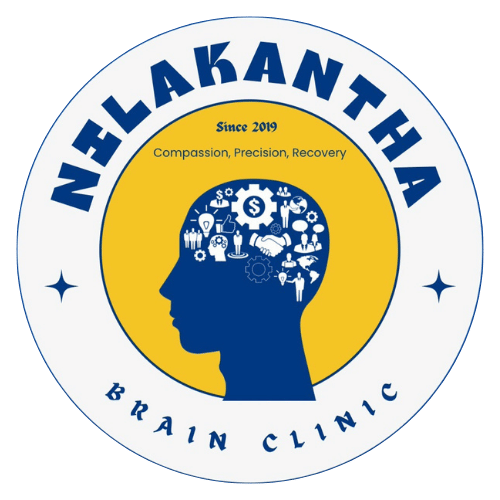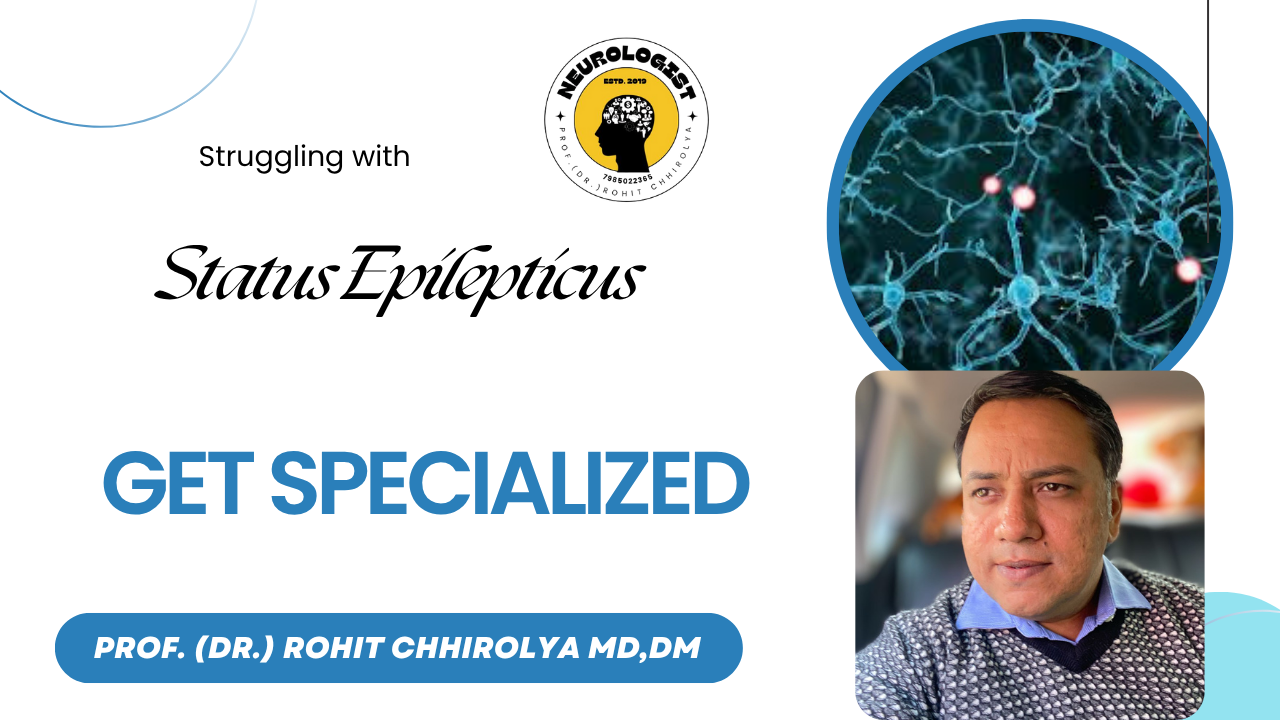Table of Contents
- What is Status Epilepticus?
- Types of Status Epilepticus
- Symptoms and Complications
- Causes and Risk Factors
- Diagnosing Status Epilepticus
- Emergency Treatment Protocols
- Why Choose Nilakantha Brain Clinic?
- How to Find the Best Neurologist Near You
- Living with Epilepsy: Reducing SE Risks
- Frequently Asked Questions (FAQs)
- Conclusion
What is Status Epilepticus?
Status epilepticus (SE) is a life-threatening neurological emergency where seizures last longer than 5 minutes or recur rapidly without recovery. It affects 10–40 per 100,000 people annually and is the second most common neurological emergency after stroke. SE can be convulsive (visible shaking) or non-convulsive (subtle mental status changes). Without immediate intervention by the best neurologist in Cuttack, it can cause irreversible brain damage, cardiac arrest, or death.
Key Statistics:
- SE accounts for 1–16% of epilepsy-related emergencies.
- Mortality rates range from 10–40%, depending on prompt treatment.
Types of Status Epilepticus
- Generalized Convulsive SE:
- Prolonged tonic-clonic seizures with muscle stiffening and jerking.
- High risk of brain injury due to oxygen deprivation.
- Focal SE:
- Seizures localized to one brain region, causing repetitive limb movements or confusion.
- Non-Convulsive SE:
- Subtle symptoms like confusion, staring spells, or coma.
- Diagnosed via EEG, often underrecognized in ICU settings.
Symptoms and Complications
Symptoms
- Convulsive SE: Continuous jerking, loss of consciousness, frothing, or cyanosis.
- Non-Convulsive SE: Agitation, confusion, or unresponsiveness.
- Autonomic Dysfunction: Rapid heart rate (>140 bpm), hyperthermia (fever >100.4°F), or hypertension.
Complications
- Neurological Damage: Hippocampal atrophy, memory loss, or cognitive decline.
- Systemic Failure: Rhabdomyolysis, kidney failure, or cardiac arrest.
Delayed treatment increases mortality risk, making urgent care from a neurology doctor in Cuttack critical.
Causes and Risk Factors
- Epilepsy Triggers: Medication non-compliance, sleep deprivation, or alcohol withdrawal.
- Infections: Meningitis, encephalitis, or neurocysticercosis.
- Structural Issues: Stroke, brain tumors, or traumatic brain injury (TBI).
- Metabolic Imbalances: Hypoglycemia, hyponatremia, or uremia.
Diagnosing Status Epilepticus
- Clinical Evaluation:
- Observe seizure duration, type, and post-ictal state.
- Electroencephalogram (EEG):
- Detects ongoing seizure activity (e.g., rhythmic spikes or periodic discharges).
- Neuroimaging (MRI/CT):
- Identifies structural causes like hemorrhages, tumors, or edema.
- Blood Tests:
- Checks electrolytes, glucose, toxins, or infection markers (CRP, procalcitonin).
At Nilakantha Brain Clinic, the best neurology specialist in Cuttack uses rapid diagnostics, including continuous EEG monitoring, to guide treatment.
Emergency Treatment Protocols
SE management follows a time-sensitive, stepwise approach:
1. Initial Stabilization (0–5 minutes):
- Airway Management: Intubation if oxygen saturation <90%.
- Benzodiazepines:
- Lorazepam (IV): 0.1 mg/kg (max 4 mg/dose).
- Midazolam (IM): For patients without IV access.
2. Second-Line Therapy (5–20 minutes):
- IV Antiseizure Drugs:
- Levetiracetam: 60 mg/kg (max 4,500 mg).
- Valproate: 40 mg/kg (avoid in liver disease).
3. Refractory SE (20–40 minutes):
- Anesthetic Agents:
- Propofol: 1–2 mg/kg bolus, then 2–10 mg/kg/hr infusion.
- Midazolam Infusion: 0.2 mg/kg bolus, then 0.1–2 mg/kg/hr.
4. Long-Term Management:
- Identify Triggers: Adjust antiepileptic drugs (AEDs) or treat infections.
- Neurorehabilitation: Physical therapy for motor deficits.
Collaborate with the best neurologist doctor in Cuttack to prevent recurrence and manage complications like cerebral edema.
Why Choose Nilakantha Brain Clinic?
- 24/7 Emergency Neurology: Rapid-response team with EEG and ICU capabilities.
- Advanced Technology: Continuous video EEG monitoring and on-site MRI/CT.
- Expert Leadership: Prof. Dr. Rohit Chhirolya, a DM Neurologist with 15+ years in epilepsy care.
- Post-SE Rehabilitation: Speech therapy, cognitive training, and counseling.
Searching for a neuro doctor in Cuttack? Check the Cuttack neurology doctor list or visit Nilakantha Brain Clinic.
How to Find the Best Neurologist Near You
- Emergency Expertise: Prioritize neurologists trained in ICU seizure management.
- Technology: Confirm access to EEG, MRI, and ventilator support.
- Patient Reviews: Testimonials highlighting rapid response and empathy.
Dr. Chhirolya, recognized as the top neurologist in Cuttack, combines urgency with precision in SE care.
Living with Epilepsy: Reducing SE Risks
- Medication Adherence: Use pill organizers or smartphone reminders.
- Seizure Action Plan:
- Teach family to administer rescue meds (e.g., rectal diazepam).
- Keep emergency contacts (e.g., 7985022365) accessible.
- Lifestyle Adjustments: Avoid alcohol, prioritize sleep, and manage stress.
Join communities like NHPians on Facebook for caregiver support.
Frequently Asked Questions (FAQs)
Q1. Can SE cause permanent brain damage?
A: Yes. Prolonged seizures (>30 minutes) can lead to neuronal death and cognitive deficits.
Q2. Is SE fatal?
A: Mortality rates are 10–40%, but timely treatment improves outcomes.
Q3. What should I do if someone has a seizure?
A: Turn them sideways, clear the airway, and call the best neurologist near me immediately.
Conclusion
Status epilepticus is a race against time. Whether you need emergency intervention or long-term seizure control, the best neurology specialist in Cuttack at Nilakantha Brain Clinic offers expertise, compassion, and cutting-edge care. Don’t wait—call 7985022365 or visit Nilakantha Brain Clinic today!

